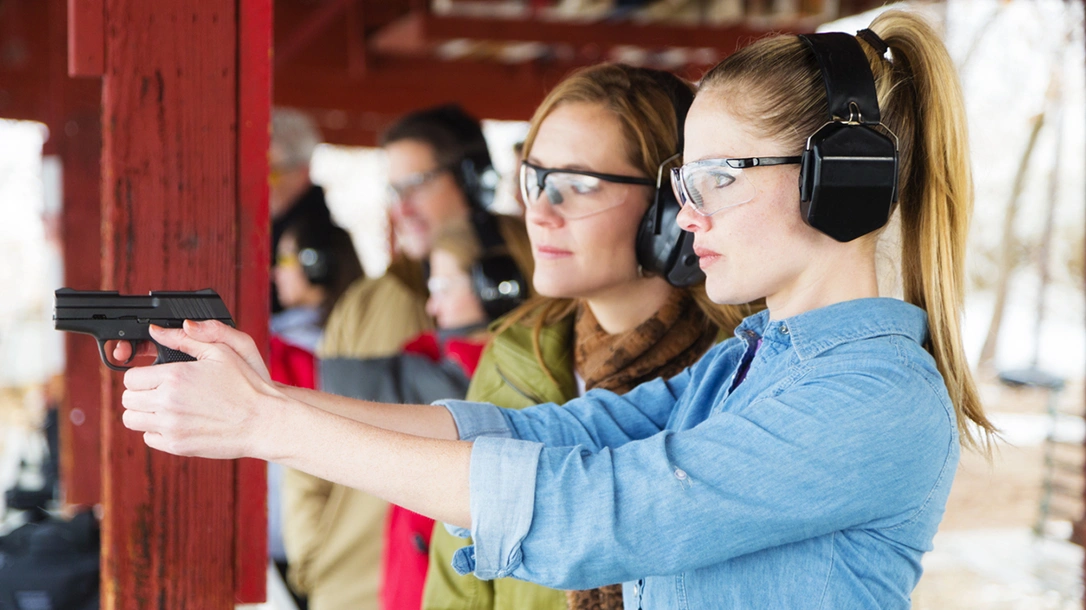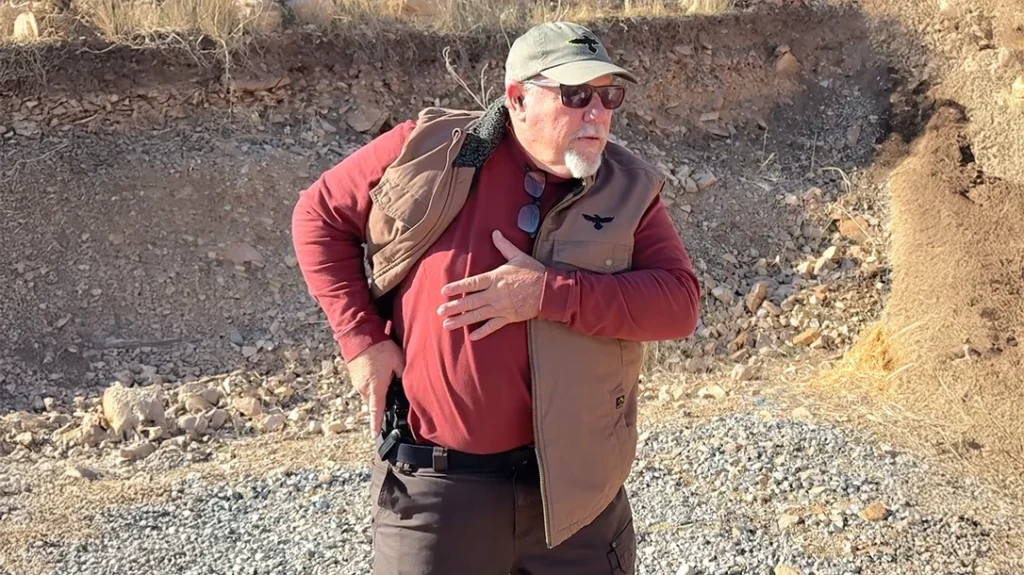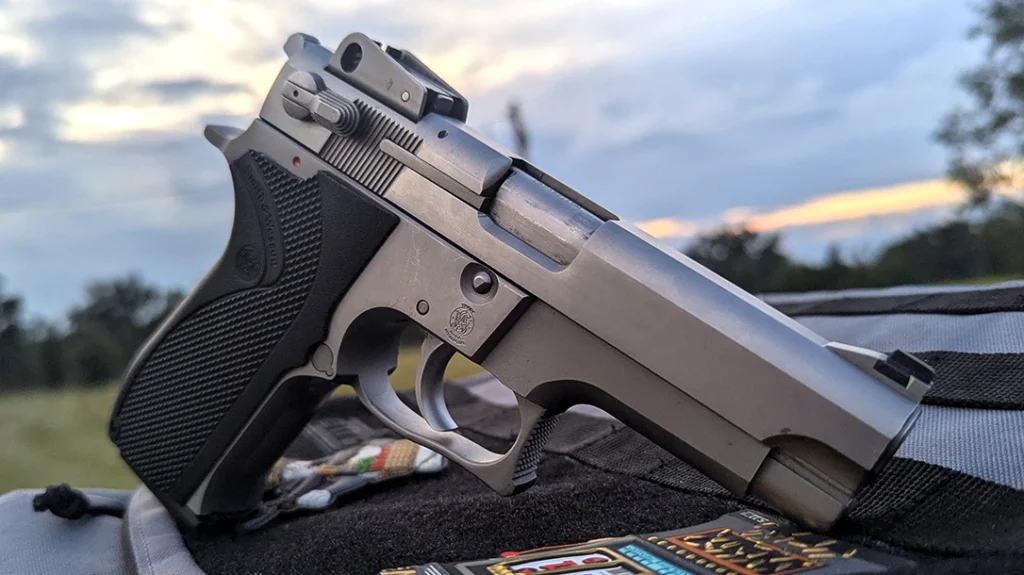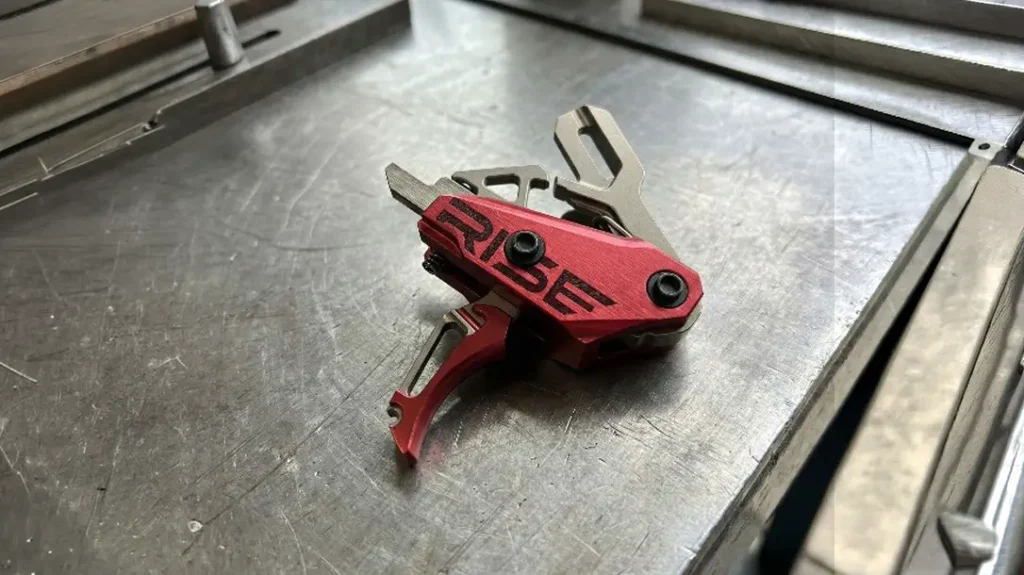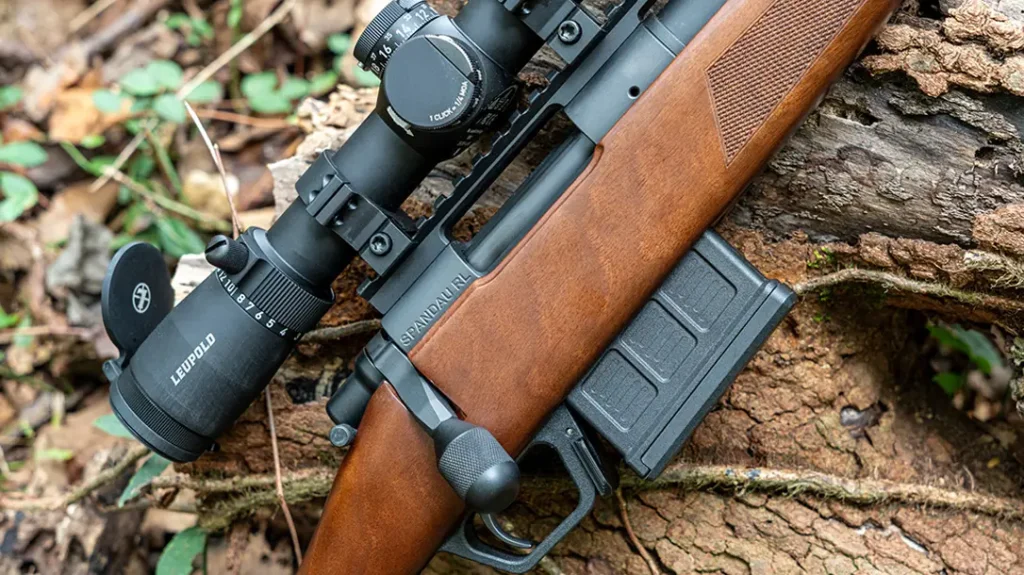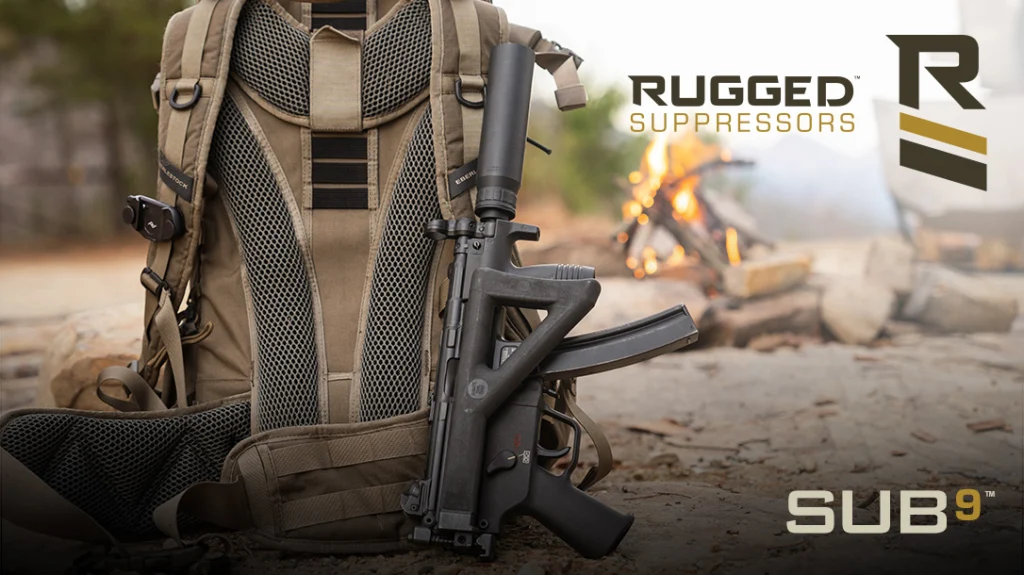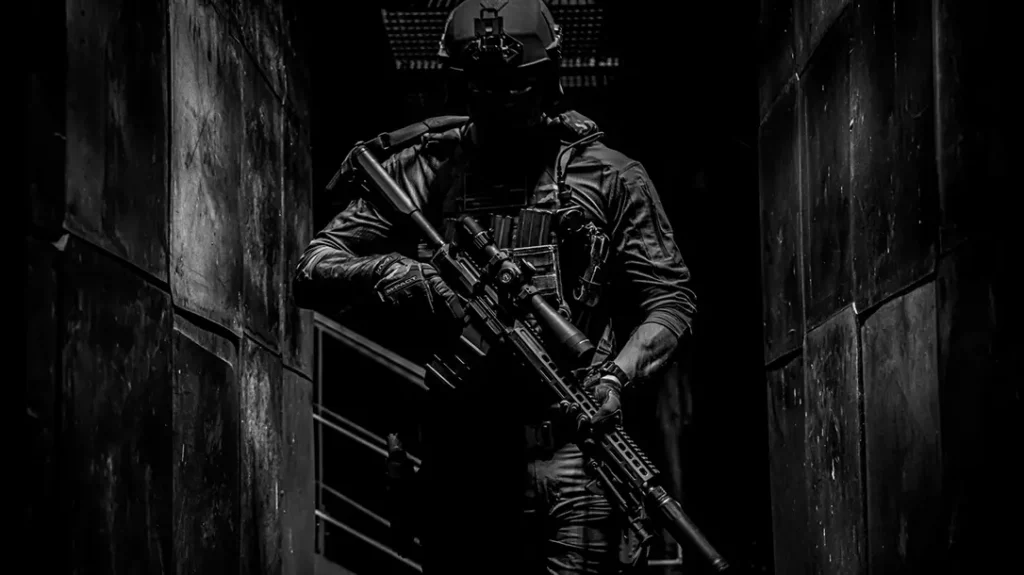As we’ve discussed previously, safety and responsibility are two of the main aspects of gun ownership. Safety is always number one. However, responsibility is also quite critical for new and seasoned gun owners alike. Of course, one of the biggest responsibilities of gun ownership is learning to use a firearm safely and responsibly. The best way to do that is to attend a training course offered by a certified firearm professional who is accustomed to working with beginners.
Finding the Right Firearm Training Course
With the wide variety of firearms trainers and training courses available, choosing the right one can be daunting for new gun owners. While there’s no hard and fast rule, we’ll give you some guidelines to follow to help you along your way.
Before we get any further, before you can choose a training course, you’ll need to figure out what trainer you want to utilize. To ensure you have a qualified trainer, certification is important.
Advertisement — Continue Reading Below
Of course, the National Rifle Association is the big dog in the training world. NRA-certified trainers certainly have the credentials necessary to teach you what you need to know. However, other organizations, including the United States Concealed Carry Association (USCCA), also certify firearms trainers.
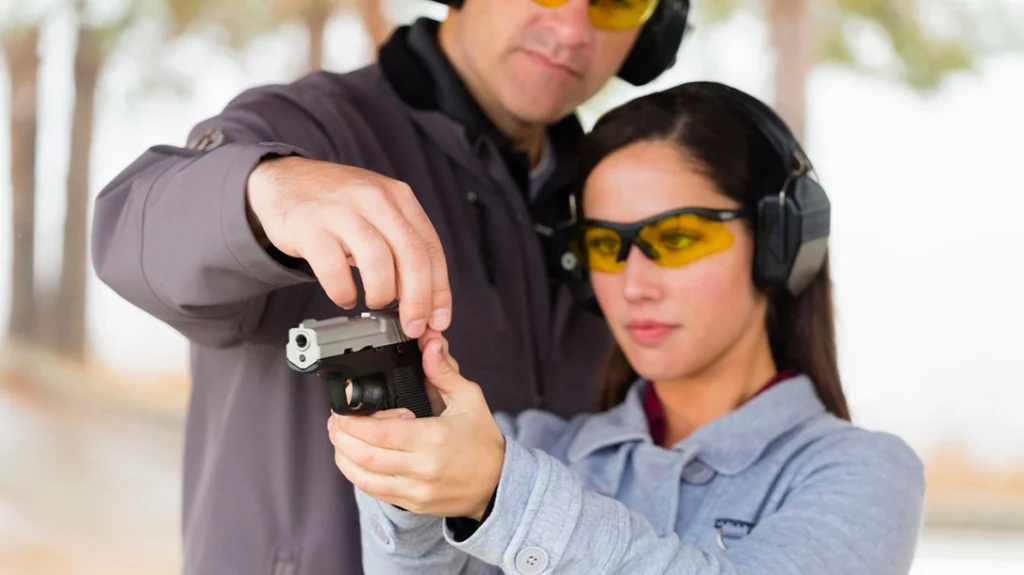
First Step in Picking the Right Course
Now, on to finding the right course for you. Before you begin, the first step of the process should be to determine what you want and/or need to learn. Part of that will depend on what kind of gun you choose for your first purchase—handgun, rifle, or shotgun.
Advertisement — Continue Reading Below
If you want to learn to use a handgun, a basic pistol class will likely be the best place to start. Instructors in such classes should teach you everything from how your pistol operates and how to maintain it to how to shoot it accurately. What you learn here will be the basis for other classes you choose to take in the future.
Of course, if your first gun is a rifle or shotgun, a basic gun safety class or a platform-specific training course might be a good starting place. Just make sure it features a certified instructor who will teach you the basics about the gun you plan to use in the course.
What you intend to do with the gun will also affect what course you attend. If you intend to someday carry your firearm for self-defense but haven’t learned the basics, that doesn’t mean you should just jump feet first into a concealed carry class. Taking a basic pistol class first will give you the basic knowledge you need to advance to the next level.
Advertisement — Continue Reading Below
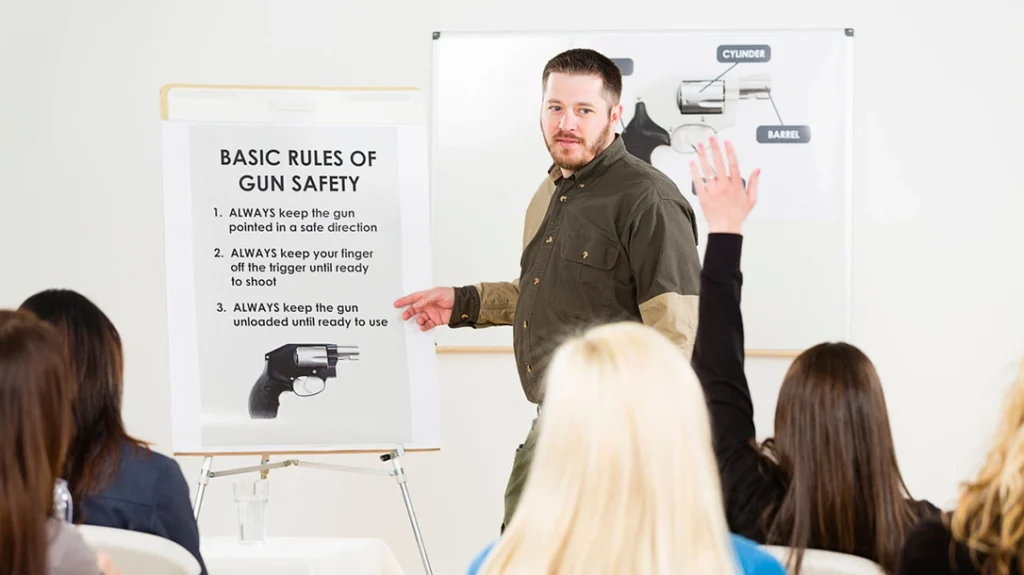
Group or One-on-One Training
Another consideration is whether you prefer a group course taught to a number of students at the same time or one-on-one attention from an instructor. Of course, private lessons are more expensive. However, they do provide a better opportunity to get all of your questions answered and learn how to handle and shoot your gun safely and responsibly. For some, a first one-on-one course followed by group courses later is a good way to start.
Prices for courses vary by region, instructor, course type, range fees, and other factors. However, any money you spend on firearms training is money well spent, and you will reap dividends from it in your future shooting endeavors.
Advertisement — Continue Reading Below
By the way, it’s a good idea to visit the facility you are considering using for training first before signing up. It never hurts to be at least a little familiar with the range and some of the personnel there. You’ll feel much less nervous and much more confident when you go there to take your course.
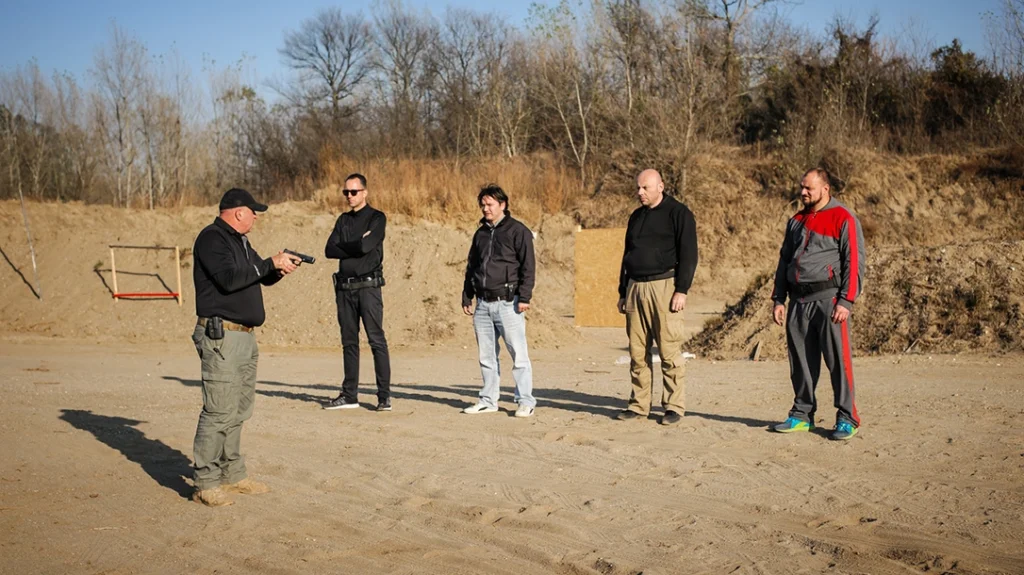
Moving on to Advanced Training
Once you’re familiar with your firearm and know how to shoot it safely, responsibly, and accurately, you’re ready to move on to more advanced courses. Mid- to high-level courses in shotgun, defensive rifle, concealed carry, etc., are available for those who will take the time to do a little searching. While it might all sound expensive, all of these courses will help you be a safer, more responsible gun owner.
Advertisement — Continue Reading Below
With the internet and social media being what they are today, you’re not just flying blind, hoping to pick a good instructor and course. Ask your social media friends if they have suggestions for an instructor or course to consider. Then, do your homework. For most instructors, you should find plenty of information about their expertise, teaching style, and effectiveness at teaching the basics.
As previously mentioned, you’re not likely to go wrong picking a course offered by an NRA-certified trainer. To learn more about NRA firearms training, including searching course schedules, please visit FirearmTraining.NRA.org.
